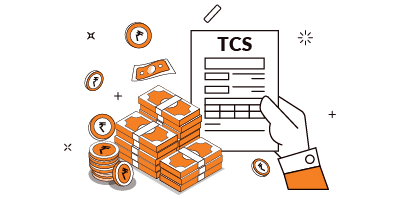Payments from Credit Cards outside India to be Taxed at 20% from July 1; Why and What’s it Impact?
The central government has notified that from July 1 onwards, 20% tax would be applied on all payments of credit cards outside of India.

After consulting with the Reserve Bank of India (RBI), the central government has notified that from July 1 onwards, on payments of credit cards outside of India, a 20% tax would be applied.
As the holiday season is here, the Indian government has notified its citizens that they may need to set aside some extra cash in order to deal with the new ‘20% TCS’ rule.

This means that the international credit card expenditure done outside India would now come under the Liberalized Remittance Scheme (LRS), also attracting a higher i.e., 20% TCS.
The Union Budget 2023-24 in February brought many significant changes, one of them being a proposal on Tax Collected at Source (TCS) for international transactions.
What does 20% TCS on Credit Cards mean?
TCS is an abbreviation for Tax Collected at Source, and it is a type of tax that is collected by the seller of selected goods and services from the buyer.
When a person sends money abroad, this tax is collected from them in the context of foreign remittance transactions. Sending money, however, applies to a variety of activities, such as traveling overseas, shopping, purchasing property, etc.

In terms of LRS, the purpose of having a single setup is to help users complete cross-border transactions. Before the Union Budget of 2023, TCS’s LRS rate for remittances that exceeded Rs 7 lakh was 5%. Everyone will now be required to pay this amount because of a new 20% TCS increase from the previous 5%, except for individuals making purchases for medical treatment or educational purposes.
Does this Tax mean ‘Taxing the Rich’?
According to Financial Exchange Management Act (FEMA), credit card transactions are going to be restricted to the $250,000 LRS limit.
Moreover, after the “20% TCS” declaration, there has also been discussion about the need for previous RBI permission for any international transfers or purchases that exceed this limit.

While the main goal of this TCS is to prevent tax fraud on particular commodities, certain economists think that rich people would now find it more difficult to make large purchases abroad, particularly when going over the LRS limit.
Therefore, in order to avoid breaking any rules, this would also require people to plan their international travel and spending more carefully.
What do the Experts say on 20% TCS?
Pranay Jhaveri, Managing Director of the region India and South Asia, Euronet said that the money transfers overseas would become more expensive as a result of India’s revised international remittance tax rate, and taxpayers would now be held more accountable.
However, after the TCS revision goes into effect, the long-term effects on the economy may be calculated.
He also added that the change would make it more difficult for banks and other financial organizations to abide by it.
Former Vice President of Testbook, Ravisutanjani, explained in his Twitter post, that this amendment would hurt the Indian credit card Industry.

According to him, many premium credit cards such as Infinia, Magnus, Reserve, etc. earlier used to offer great reward points on international transactions. And even after markup and taxes, the value back on foreign spending was significant. But after this new change, people would need to plan their spending accordingly.
Some of the experts also said that the levying of 20% TCS also aims to tighten the central bank’s control over international remittances. At the same time, along with compliance, it may also increase TCS’s cash flow and the number of individuals liable to this tax.
However, as this update has only been proposed by the central government, experts are waiting for more information in order to properly understand what it means.
Till then, the 5% TCS rule will remain in operation until June 30.
Published By Naveenika Chauhan




